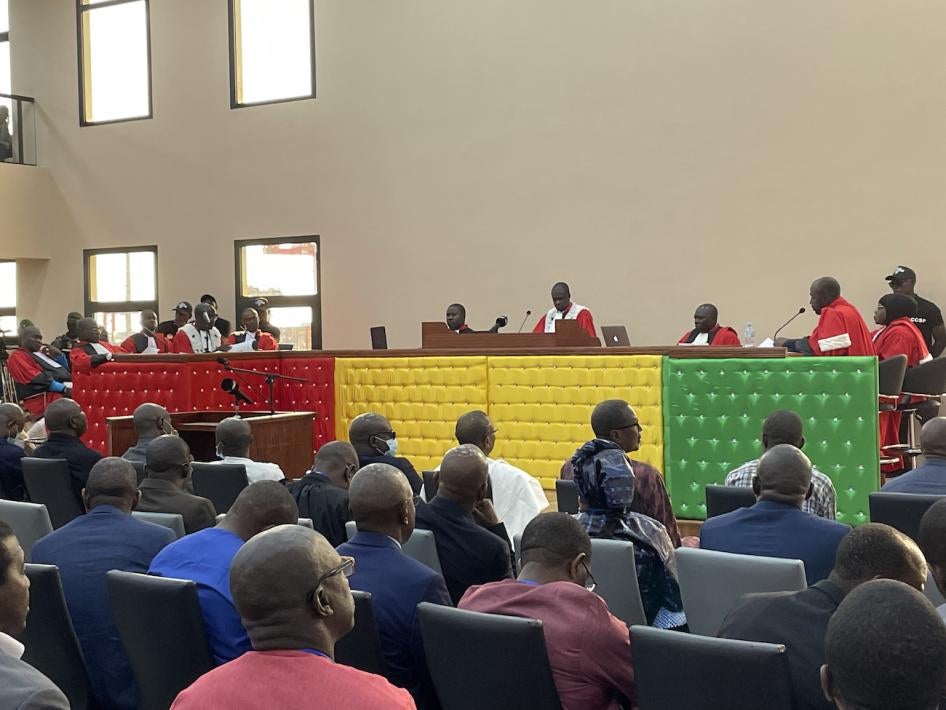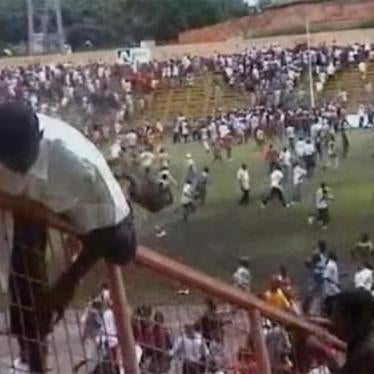For more than two weeks, Guinea’s landmark trial for the killings, rapes, and other abuses committed on September 28, 2009 at a stadium in the country’s capital, Conakry, has been suspended over a boycott by defense counsel. During the 2009 assault, security forces opened fire on a peaceful protest. More than 150 people were killed and dozens were raped. Security forces then engaged in a cover-up, burying bodies in mass graves.
The boycott began after the lawyers requested financial assistance for their legal representation given their clients’ limited resources and the “scope of the tasks, complexity of the trial, and the amount of time the trial is taking.” Guinea’s justice minister, Alphonse Charles Wright, noted that the one defendant who requested a court-appointed lawyer was provided one. He said that “if the [other accused] parties … say they can no longer afford to pay the lawyers, the state will take over,” but the Justice Ministry will “not budge one iota” for existing defense counsel.
A change in legal representation now would pose major difficulties. New counsel will need adequate time and resources to prepare the defense, necessitating a significant delay given the case’s complexity and magnitude.
The controversy around assistance for counsel is taking place amid reports of an overall depleted trial budget and concerns that resources are insufficient for the trial’s completion.
A steering committee for the stadium massacre trial (the comité de pilotage), which is composed of Guinean authorities and Guinea’s international partners, including the United Nations, the European Union, and the United States, could help work out a resolution to the current impasse and larger budgetary concerns. A couple of situations to draw from may be the counsel assistance arrangements for complex atrocity crimes being tried in Senegal and the Central African Republic.
The Guinea trial’s long-awaited opening 13 years after the crimes were committed and the trial’s progress generated hope for victims of the massacre and their families. Prior to the hiatus, the judges in the proceedings heard all the accused – including a former president and ministers – and dozens of victims in proceedings that have been closely followed in Guinea.
Guinea and its international partners should find a way forward so that justice can finally be delivered both for the victims and all Guineans concerned for justice.









